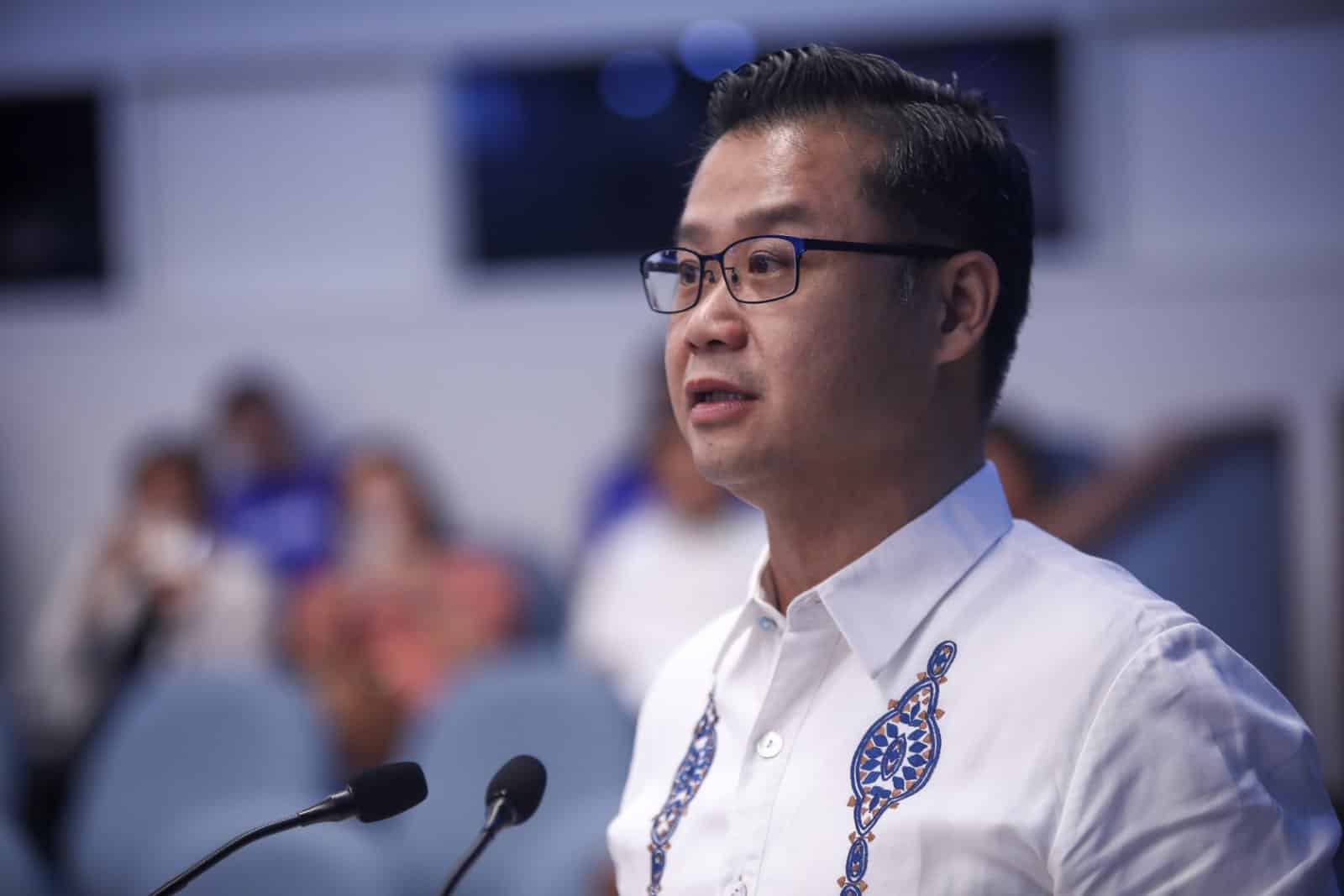EO on Pogo ban coming; details still a concern for senators

Sen. Win Gatchalian—(Senate Public Relations and Information Bureau)
MANILA, Philippines — The executive order (EO) implementing the total ban on Philippine offshore gaming operations (Pogos) is expected to be released within the month, according to the Presidential Anti-Organized Crime Commission (PAOCC).
“I’ve seen the draft and I think [it will be out] in two weeks’ time,” PAOCC Executive Director Gilbert Cruz said during the hearing of the Senate committee on ways and means, which discussed the bills seeking to put into law the Pogo ban.
READ: Marcos: ‘All Pogos are banned!’
President Marcos announced a total ban on Pogos, now referred to as internet gaming licensees (IGLs), during his third State of the Nation Address (Sona) in July.
“Disguising as legitimate entities, their operations have ventured into illicit areas furthest from gaming, such as financial scamming, money laundering, prostitution, human trafficking, kidnapping, brutal torture, [and] even murder. The grave abuse and disrespect to our system of laws must stop,” Mr. Marcos said.
Article continues after this advertisementREAD: EO enough to enforce Pogo ban, says SolGen
Article continues after this advertisementBut despite the President’s order, some senators still filed separate anti-Pogo bills to prevent these gaming operators from returning to the country in the future.
Coverage of ban
Sen. Sherwin Gatchalian filed Senate Bill No. 2689, which seeks to repeal the taxability of offshore gaming in the country as provided by Republic Act No. 11590, the only law that legitimizes Pogo operations.
Senators Joel Villanueva and Alan Peter Cayetano are also pushing for the passage of Senate Bill Nos. 63, 1281, and 2752, which all seek to prohibit Pogos and all forms of online gambling in the country.
According to Cruz, the definition of terms has already been included in the draft EO, but the provisions of its implementation were still being discussed.
“How it will be implemented is still being resolved … the only things being discussed are the concept of the operation and how it will be disseminated,” he said.
Asked by Gatchalian if the EO would cover the special-class BPOs and other online games, Cruz said that a technical working group (TWG) would be formed to deliberate on the details, including which entities are actually covered by the Pogo ban.
Cruz said that among the agencies that would comprise the TWG include the state-run Philippine Amusement and Gaming Corp. (Pagcor).
At a press briefing after the hearing, Gatchalian said they would push through with crafting the legislation against Pogos despite the expected issuance of the EO.
“We will not allow Pogos to return to the country. We will clearly define what is Pogo, what are the businesses associated with Pogos … we will include all that in the law so that it will be institutionalized. Whoever is the sitting President, these Pogos cannot be allowed to operate again because there is already a law against them,” he pointed out.
Pagcor revenue sources
Gatchalian said they were also studying “e-gaming,” which allows online bets exclusively from local clients, particularly the revenues that the national government is earning from e-gaming, as there were proposals to also ban it.
He said he saw the need to regulate e-gaming given the revenues it contributes.
“It’s getting bigger. In Pagcor alone, P22 billion, in BIR [Bureau of Internal Revenue] it’s already almost P12 billion,” he said, noting that Pagcor earned only P6 billion and BIR just P2 billion from e-gaming three years ago.
However, Gatchalian said the committee has also seen weaknesses in its regulation, particularly on how easy it is to open an e-gaming account.
“Anybody, even minors, can open an e-gaming account using a fake name and age. And since you can provide a fake name, you can also do money laundering,” the senator said.
“Our police said they only get minimal reports of crime related to e-gaming. But the mere fact that there is a weakness in the regulatory system, it might get worse in the future,” he added.
Impact on casinos
Also during the hearing, Gatchalian gathered that online gaming contributes about 30 percent of Pagcor’s total revenue.
Pagcor Chair Alejandro Tengco said he was expecting to earn P100 billion this year, a first in the history of gaming, and that P35 billion would be contributed by online gaming.
Gatchalian noted that e-gaming was easier to deploy compared to landbased casinos that require the building of hotels, integrated resorts and other facilities.
E-gaming companies, on the other hand, needed only an office and a lot of computers to compete with land-based casinos.
“In your analysis, is there ‘cannibalization’ from land-based casinos going to electronic gaming activities?” the senator asked.
Tengco agreed that online gaming would certainly affect casinos and the gaming industry was indeed going electronic because of technology, but integrated resorts would continue to operate, not only in the Philippines but also in the world, because gaming patrons would want to go to casinos for personal experience.